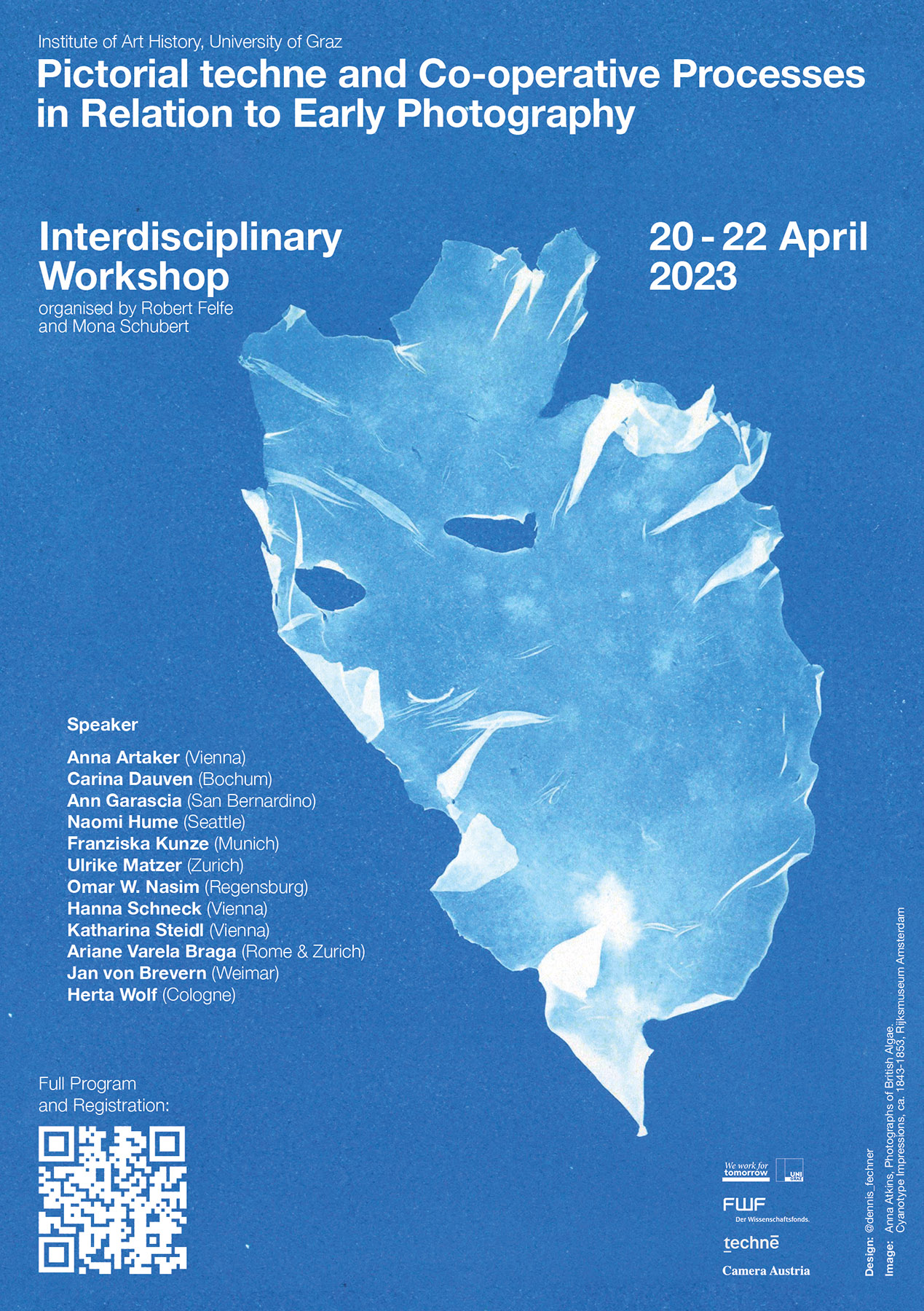REGISTRATION: https://bit.ly/40gBazp
=> poster download
=> program download
The notion of “co-operative processes” refers to two different aspects of image genesis in the mid-19th century period, which in many cases overlapped and were interconnected in a broad spectrum of techniques and media practices. On the one hand, imaging procedures were based on an experimental combination of various traditional and novel methods. Nature printing, photograms, cliché verre or dessin fumée are just a few examples of this hybrid interweaving of pictorial techne. The complex operations required for their execution were achieved either through the close collaboration of different specialists, or by specific individuals whose work orchestrated a variety of techniques and skills. On the other hand, “co-operative processes” can be understood as those techniques in which also non-human factors contribute to the creation of imagery, such as the contact marks of organic material in nature printing, chemical reactions caused by light, imprints of apparative systems or the traces of soot. These forces and their effects are initiated deliberately and manipulated technically, but at the same time they are in a certain sense "not man-made", can never completely intentionally directed and controlled.
The fascinating variety of co-operative processes, some of which have almost disappeared today, coincides with the advent of photographic images, whose role as a "modern medium" with a great future was by no means evident from the outset. Highlighting photographic processes in the title of the workshop does not aim at placing them once again as the vanishing point of a teleological history of media and the arts. Rather, in the sense of an archaeology of art and media practices, they have the role of a 'guiding fossil' that evolved in direct relation to a whole series of other image techniques and media practices of 19th century visual culture. Overlapping points include, for example, a new appreciation of individual craftsmanship alongside the revival of traditional art forms vs. increasingly mechanised production processes and a progressive mass media use of images in the context of capitalist value creation and consumption.
The focus of the workshop is not primarily on photography itself, but this expanded field of pictorial techne, in which photographic processes became established from the mid-19th century onwards and which continued to have an impact into the 1920s and 1930s. The systematic and methodological basis of “co-operation” will serve as an entry point to an in-depth discussion on the aspects presented. Over the course of three days, international experts from academic and cultural fields will present their research and projects.
For further information please contact:
Robert Felfe (robert.felfe@uni-graz.at)
& Mona Schubert (mona.schubert@uni-graz.at)
